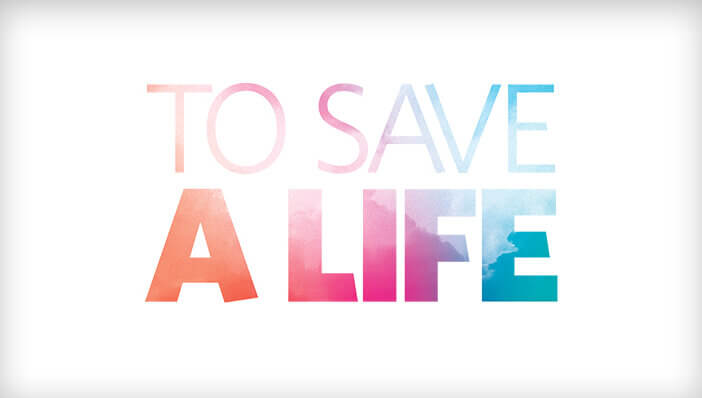
I’m used to receiving lots of unsolicited advice when it comes to my son, whose mental illness often comes out in the form of behavior problems. There’s a big backlash right now against “spoiled kids” and “wussy parents,” but let me set one thing straight: Not every child screaming in the grocery store or having a tantrum in the middle of the restaurant is a spoiled brat. Some people have what’s called an invisible disability. Parents of those kids may look like they’re “giving in,” but you don’t know what’s going on behind the scenes. So instead of judging, try helping. Or if you’re not in a position to help, offer a sympathetic smile or just mind your own business.
Here are five of the worst things I’ve been told in regards to my son’s behavior:
1. “Don’t take him to Walmart.”
Countless times I’ve sat and listened to a professional tell me how to raise my child with special needs while feeling my blood boil and steam coming out my ears. I’m generally a diplomatic and patient person, but nothing gets me more riled up than someone talking down to me about the small person I spend 24/7 with, after knowing him for a total of 15 minutes. I’m pretty proud of the fact there have only been two times I’ve really lost my temper.
One of those times was when the psychiatrist at the hospital my son was admitted to asked me about what triggered my son’s behaviors. I gave Walmart as an example. Her advice, when I told her I believe he needs a med change because he’s been violent and unstable was, “Well, don’t take him to Walmart.”
Okay, I get it. Work around the child. Avoid his triggers. Yes, very good. In an ideal world, I would wrap him in bubble wrap and never let him out of the house. I would hire a full-time nanny to do all his favorite things with him all the time so he’d never have to wait, or be bored or not get what he wants. But this isn’t a perfect world and sometimes we run out of toilet paper and my husband is out of town and I have no babysitter. So sometimes my child has to go to Walmart. And I’d like to be able to do that without him threatening to stab me because his meds aren’t working to control his moods so he’s going from high as a kite to Oscar the Grouch in the span of 10 minutes. Is that too much to ask from a psychiatrist at a mental hospital? I wouldn’t think so.
2. “You should try time-out.”
I’ve been around kids my whole life. In fact, I was known in babysitting circles as being able to handle the tough cases. But my family isn’t a “Supernanny” episode. From 18 months old, my child has picked up the time-out chair and thrown it at me. It didn’t matter how many times I put him back in that chair, he would not sit. Ever. I thought I could out-stubborn him. I’m an adult, I’m bigger, I’m more patient. Surely, I would win eventually. Well, it escalated until nothing existed in my life but the battle for time-out. What I’ve learned since then is that no one wins the battle of wills with my son. No one. So when a psychiatrist at a hospital (yes, another one), asked me if I’ve tried time-out, I did sort of lose the cool I’d worked so hard to keep during the meeting.
I mean, really. I had my child admitted into a psychiatric hospital (which was no easy feat) because he was talking about wanting to kill people and himself and his first question was, “Have you tried time-out?” And these are supposed to be the experts! It’s frightening that I go into these meetings feeling like I know more about mental illness than the professionals do.
3. “You should spank him.”
If this is how other people want to discipline their children, that’s up to them. It’s not my style. I don’t spank my neurotypical child, it’s just not in my parenting philosophy. But I think advising someone who is having discipline problems with their child (who has special needs and can be aggressive) to actually hit their child in response is especially ridiculous. When I had this debate with old friends who are not friends anymore (couldn’t hack it), I pointed out that hitting a child for hitting seems very counterintuitive and confusing for the child. They insisted spanking was not hitting. I thought about this statement from a child’s point of view. The act of spanking a child, no matter how loving you mean it to be, is, in fact, the same motion as hitting. So hitting your child while telling them not to hit other people makes absolutely no sense to me. And if it doesn’t make sense to me, an adult, imagine how a child feels about it.
Aside from the fact that my child not only had developmental delays but also sensory issues and a mood disorder, spanking a child for something they didn’t understand and couldn’t control is especially dangerous. I really hope parents of special needs children really think hard about their decisions involving spanking.
4. “He just needs to be shown who’s boss.”
I have to be honest. When people say this, I kind of want to punch them in the face.
I get that a lot of people think kids nowadays are entitled, spoiled, need more discipline, etc. I’ve seen the memes circulating online. But that’s not my kid. My child does not need to be “shown who’s boss.” My child needs understanding and more patience than most people will ever have. He needs therapy and sensory breaks and to feel successful and accepted. I’m tempted, when people say this, to let them give it a try. Go ahead. Take him to your place for some Brat Bootcamp. Good luck with that because I’d be willing to bet my savings that by the end of a week, they’ll feel as imperfect and helpless as sometimes do.
Even if I was spoiling my child and he did need to be “shown who’s boss,” he would still have a disability. Permissive parenting doesn’t create abnormal brain functioning. Period.
5. Anything that starts with the words “He needs to learn to…”
I’m gonna stop you right there. I hear this a lot. “He needs to learn coping skills.” “He needs to learn he can’t get what he wants.” “He needs to learn to wait.” “He needs to learn to control himself.” Yes. All those things are true. But how is telling me that helpful? I know what he needs. I live it constantly. So unless you’re volunteering to come over and teach him these things, pointing out what he needs to do and learn is annoying. First of all, his disability makes it hard for him to learn. So stating, “he needs to learn,” is already putting him up against a big obstacle.
Instead, he needs guidance in how to control himself. He needs help to find something to distract him while he waits. He needs professionals to find things that help him calm down when he’s upset. Saying “he needs to learn” is placing all of the blame and responsibility for fixing things on him. And that isn’t fair. He’s the one with the disability.
People are well-meaning for the most part. I know that. I just wish they’d realize that parents of kids with special needs are already reading, thinking, experimenting, and researching far more than anyone can imagine. They’ve drained their bank accounts on therapies. They’ve ran [run] themselves ragged with new ideas to try. They’ve fought schools and doctors and probably their spouses and themselves. They’ve lost sleep. Lots and lots of sleep. They don’t need advice. They need support. They need acceptance and help (so much help!). So instead of offering your version of good parenting, take a minute to listen without judgment, and if you’re really brave, ask how you can help.
